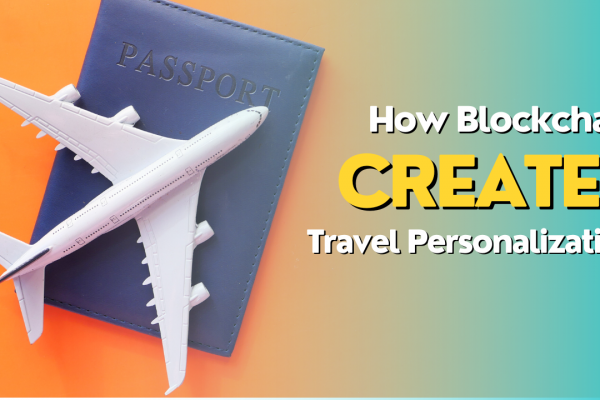
In the context of tourism, Blockchain is a digital system that links a chain of encrypted data blocks, forming an immutable chain. This means that every transaction, piece of information, and data related to tourism is stored within blocks, each linked to the previous one, creating an unalterable and irremovable chain.
Decentralization: In the realm of tourism, Blockchain's decentralization refers to the absence of a single organization or bank controlling data or transactions. Instead, data is distributed across an independent network of computers, called nodes. This prevents unreasonable alterations or fraud because changing data would require hackers to infiltrate and modify data on multiple computers simultaneously, a task that is highly difficult and ineffective.
Security: Blockchain employs encryption to safeguard travelers' transaction information and data. Data on the Blockchain is stored in data blocks, with each block linked to the previous one by a unique confirmation code, creating an unmodifiable chain. This prevents illegal access and ensures that data cannot be altered unreasonably.
Transparency and Traceability: Every transaction conducted on the Blockchain is publicly recorded in a data block. Thanks to this transparency, anyone can verify transactions without the intervention of third parties. This not only creates transparency but also enables the tracing of transaction history. In the tourism industry, this can be applied to track the origin of products such as food, beverages, and handmade items, assuring customers about the source and quality of the products or services they purchase.
In summary, the decentralization, security, and transparency, coupled with the traceability of Blockchain, have unlocked vast potential for revolutionizing the tourism industry. It has created a fair and trustworthy environment for both travelers and tourism businesses.
Increased Security: Blockchain enhances the security of travelers' personal information. Information about travel itineraries, payment details, and other personal data are securely stored in data blocks, minimizing the risk of loss or security breaches.
Optimizing booking and payment management: Blockchain technology enables payment transactions to be swiftly and transparently confirmed, reducing the waiting time for payment acceptance and the risk of payment errors.
Enhancing personalized travel experiences: By storing customers' travel histories and preferences, blockchain generates personalized travel suggestions. Services, promotions, and travel destinations can be customized based on this personal data.
Reduced risk of fraudulent transactions: Due to the transparency and immutability of blockchain, the risk of fraudulent transactions is significantly reduced, providing travelers with peace of mind when using travel services.
Encouraging collaboration within the Industry: Blockchain establishes a shared and transparent system for partners in the tourism industry, encouraging safe and fair data sharing and collaboration.

Account verification: Blockchain technology securely stores account verification data, ensuring that users can confirm their identities in a safe and transparent manner. By eliminating the need for third-party verification, this process becomes more efficient and less susceptible to manipulation or fraud.
Reduced fraud: One of the significant advantages of blockchain in hotel bookings is the prevention of fraud. Booking transactions are permanently recorded on the blockchain, making it impossible to alter or tamper with the booking details. This immutability ensures that confirmed bookings are legitimate and reduces the risks associated with fraudulent activities.
Secure and swift payment transactions: Convenient Currency Transactions: Blockchain facilitates payments using digital currencies, including cryptocurrencies and e-wallets. This feature simplifies international transactions, eliminating the need for currency conversion and reducing related costs. Customers can make payments in their preferred digital currency, enhancing convenience and accessibility.
Direct fund transfers: Traditional booking systems often involve intermediaries, leading to delays and additional expenses. With blockchain, payments occur directly between the customer and the hotel. This peer-to-peer transaction method reduces costs, minimizes waiting times, and enhances the overall efficiency of financial transactions.
Customer data management: Blockchain provides a secure and immutable storage solution for customer data. Personal information, including names, addresses, and payment details, is encrypted and stored on the blockchain network. This encryption ensures that customer data is protected from unauthorized access and tampering. Customers can have confidence that their sensitive information remains private and secure.
Transaction history management: Every payment made and booking transaction conducted is recorded on the blockchain. This transparent system allows customers to trace their transaction history effortlessly. They can review past bookings, payments, and related details, creating a high level of transparency. Hotels can also utilize this information to enhance customer service, offering tailored experiences based on the customer's booking history.
Enhanced personalized services: Leveraging transaction data and individual preferences, hotels offer bespoke experiences. Guests enjoy tailored amenities like serene rooms, chosen room categories, and exclusive promotions. This personalized approach enhances overall guest satisfaction, ensuring a memorable and unique stay for each visitor.
Service and activity recommendations: Using customer travel history, the system can suggest services and activities at destinations, enhancing personalized and memorable travel experiences. These tailored recommendations enrich travelers' experiences, ensuring they engage in activities aligned with their preferences.
By employing blockchain in the hotel industry, businesses not only enhance safety and transparency for customers but also optimize their transaction processes and elevate customer experiences, creating an efficient and trustworthy tourism business environment:
Secure personal information management: Customer personal data is stored on the blockchain, preventing illegal access and enhancing security.
Preventing exploitation: With blockchain, information cannot be altered once stored, preventing the exploitation of personal information.
Digital currency payments: Blockchain enables direct payments with digital currencies or e-wallets, reducing the risk of bank account information loss.
Rapid transaction verification: Payment transactions are instantly verified, eliminating waiting times and reducing the risk of unsuccessful transactions.
Transparent record-keeping: Every transaction is recorded on the blockchain, creating a transparent system for users and businesses to monitor all activities.
Easy data traceability: Tracking transaction history on the blockchain makes it easy to determine the source and manage all customer-related data.
Reduced transaction costs: Direct payments between parties on the blockchain minimize transaction costs by eliminating financial intermediaries.
Fraud prevention: Due to unchangeable data, blockchain helps prevent fraud in payment transactions and bookings.
Personalized services: Based on transaction history, hotels can provide personalized services such as room preferences, special requests, or tailored promotions.
Service and activity recommendations: Using blockchain data, services and activities can be suggested, enhancing the travel experience.
Blockchain enables the creation of flexible, transparent, and easily customizable loyalty programs tailored to the specific needs of individual customers, enhancing their experience and loyalty to the hotel. Here are ways blockchain creates personalized customer loyalty programs and offers:
Safe identity confirmation: Blockchain allows secure and unalterable storage of customer identity information. Every customer transaction and activity is recorded, ensuring transparency and authentication.
Safe and convenient transactions: Using digital currencies on blockchain enables swift and secure payment transactions. Rewards and offers can be automatically triggered when customers meet specific conditions in smart contracts on the blockchain.
Data-driven rewards programs: Smart contracts on blockchain can track customer behavior. For instance, if a customer regularly books rooms during a specific time, they can be rewarded with special discounts or offers during that period.
Point-based rewards based on service usage: Each confirmed transaction on the blockchain can generate reward points. This encourages customers to use hotel services frequently, and they can redeem these points for various benefits or privileges.
secure data sharing: Blockchain enables hotels to share data with partners securely. Information about rewards and loyalty programs can be shared transparently and securely, enhancing benefits for customers.
Collaboration based on smart contracts: Smart contracts on blockchain can automatically activate rewards when conditions are met. For example, if a customer books a room within a specific timeframe, the discount will be automatically applied without external intervention.
Thanks to its transparency, safety, and personalization features, blockchain has opened new avenues for optimizing travel experiences, making each journey unique and tailored to individual customer preferences. Here's how blockchain stores customer personal information and preferences to create personalized travel experiences:
Safe and Secure Data: Blockchain stores customer personal data securely and unalterably. Information such as previous travel itineraries, preferences, and special requests is encrypted and protected, preventing unauthorized access.
Creating Personal Travel Profiles: Customers can create personal travel profiles on the blockchain. These profiles include information about visited destinations, favorite activities, preferred cuisines, and specific requests. Future travel providers can access these profiles to personalize their experiences.
Recommendations Based on Travel History: Utilizing travel history data on the blockchain, travel providers can suggest destinations and activities based on places customers have experienced before. This creates a customized travel experience reflecting their desires.
Creating Personalized Promotions: Blockchain allows the creation of promotions based on customer preferences and behavior. For example, if a person frequently engages in outdoor activities, they might receive special discounts for outdoor tours or regional cuisine.
Optimizing Feedback Services: Through blockchain, travel providers can transparently collect feedback from customers. This helps them understand what customers like and dislike, enabling them to personalize services and enhance the overall experience.
Creating Individual Travel Communities: Blockchain can stimulate the creation of individual travel communities. Users can share advice, reviews, and recommendations through blockchain-based platforms, allowing them to interact with like-minded individuals and create unique travel experiences.

Blockchain optimizes personalized travel services by providing recommendations for travel destinations, restaurants, and entertainment activities based on individual data through the following methods:
Safe Collection of Personal Data: Blockchain enables the secure and transparent collection of personal data. Information such as travel history, culinary habits, and entertainment preferences is stored encrypted and securely.
Automated Personal Travel Profiles: Personal data stored on the blockchain can automatically generate personal travel profiles. These profiles include visited destinations, favorite restaurants, and desired entertainment activities. Businesses can access this information to understand customers better and advise them on the best experiences.
Personalized Recommendations from Data: Using data from personal travel profiles, travel businesses can create personalized recommendations. For instance, if the profile shows a preference for historical sites, recommendations for historical tours or museum visits can be provided.
Special Offers and Tailored Discounts: Data from the blockchain can help travel businesses create special promotions. For instance, if a profile indicates a customer frequently enjoys upscale dining, they could receive special discounts when booking tables at those restaurants.
Direct Communication and Personalized Interaction: Businesses can interact directly with customers through blockchain. Based on information from personal profiles, they can send notifications about events, discounts, or suggested entertainment activities at nearby destinations.
Trends in using blockchain to optimize personalized travel experiences revolve around using the technology to offer customized and personalized travel services and experiences for each customer. Here are the anticipated trends in this area:
Reward and Loyalty Points Systems: Travel businesses will use blockchain to create reward and loyalty points systems based on customer transactions and interactions. Instead of traditional membership card systems, blockchain will create a transparent and unchangeable system.
Customer Profile Management: Customer profiles, including travel history, preferences, and reviews, will be stored on blockchain. This allows travel businesses to access this information securely and use it to create personalized travel experiences.
Creating Multi-Source Data Platforms: Blockchain will enable travel businesses to integrate data from various sources such as customer reviews, expert opinions, and geographic information. This data will be used to assess customer preferences and suggest suitable experiences.
Creating Personalized Content Markets: Blockchain will establish a personalized content market where businesses and users can exchange personal data to optimize travel experiences. Users can share their information to receive better deals and experiences.
Blockchain technology has opened up a new world in the travel industry, optimizing personalized experiences for customers. By securely storing personal information and providing transparency, blockchain helps travel businesses create limitless experiences based on individual preferences and desires. This not only enhances communication and interaction between businesses and customers but also reduces transaction costs and increases transparency. However, for success, businesses need to maintain flexibility, collaborate closely with technology experts, and listen to customer feedback, shaping the future of personalized travel.










(84-63) 3 826042 – (84-63) 3 511142
No 54 Nguyen Dinh Chieu, Ham Tien Central Mui Ne Beach Binh Thuan Vietnam
523 To Hien Thanh District 10 Ho Chi Minh City Vietnam
Ha Long Halong City Quang Ninh Vietnam
A13 Hung Thong 2 Halong City Quang Ninh Vietnam




